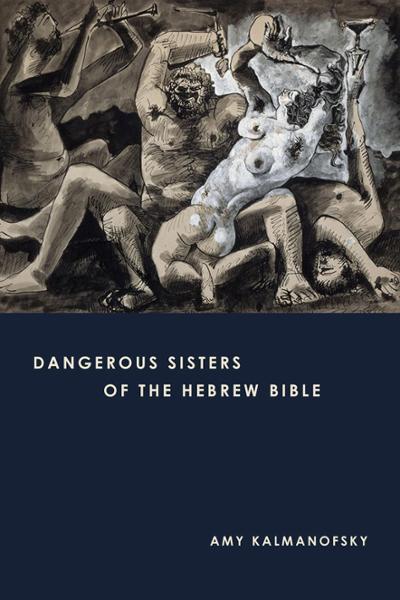"Amy Kalmanofsky rightly contends that ‘conventional reading’ of biblical narrative tends to 'overlook the Bible’s significant sisters.' In
Dangerous Sisters of the Hebrew Bible, she rectifies that oversight in a thoughtful and provocative manner. Her work is anchored in sensitive close reading from a refreshingly original point of view, and her focus on text is complemented by judicious appeal to theory, thoughtful engagement with previous scholarship, and sound judgment."
—Alan Cooper
Jewish Theological Seminary
"Kalmanofsky's balanced, creative readings of biblical stories of sisters and sisterhood shed new light on biblical gender ideology. Her highly readable style makes this an invaluable resource for teaching about the Bible and gender."
—Karina Hogan
Fordham University
“Kalmanofsky"s careful examination of both sisters and sisterhoods demonstrates how they were again and again critical in advancing grand narrative aims of the Bible and principles of Israelite society. Her groundbreaking work not only enables a fresh reading of the text, but also puts forward alternate understandings of the Israelite family and ultimately the divine-human relationship."
—Deborah Waxman
Reconstructionist Rabbinical College
"With exegetical finesse and ingenuity, Amy Kalmanofsky explores biblical stories about sisters and sisterhoods, a topic largely overlooked by prior scholars. Dangerous Sisters of the Hebrew Bible offers valuable new insights about these 'destabilizing figures' and the important role they play in family narratives in the Bible. Through her perceptive analysis of nine texts dealing with ideal and dangerous sisters and sisterhoods, Kalmanofsky shows how these stories compare to other narratives about women and brothers, what these texts tell us about the Bible's gender ideology, and how they contribute to the Bible’s ‘grand narrative.’ As a result, the book is an important addition to the field of biblical studies."
—Andrea L. Weiss
Hebrew Union College-Jewish Institute of Religion
"Dangerous Sisters offers fresh insight into the complex roles of sisters and sisterhoods from the biblical narrative that are resonant today where women are still seen as both essential agents and expendable objects. Our contemporary stories mirror the biblical ones as women support and explode existing boundaries in families, communities and societal structures. Though Amy Kalmanofsky approaches her topic with scholarly expertise this compelling book should be read by a broad audience of lay people and religious professionals from many faith traditions."
—Katharine Henderson
Auburn Theological Seminary

